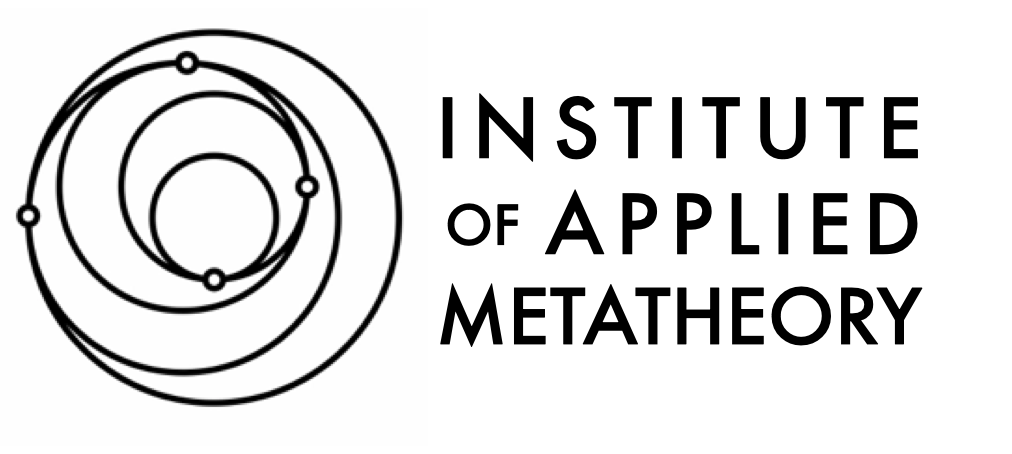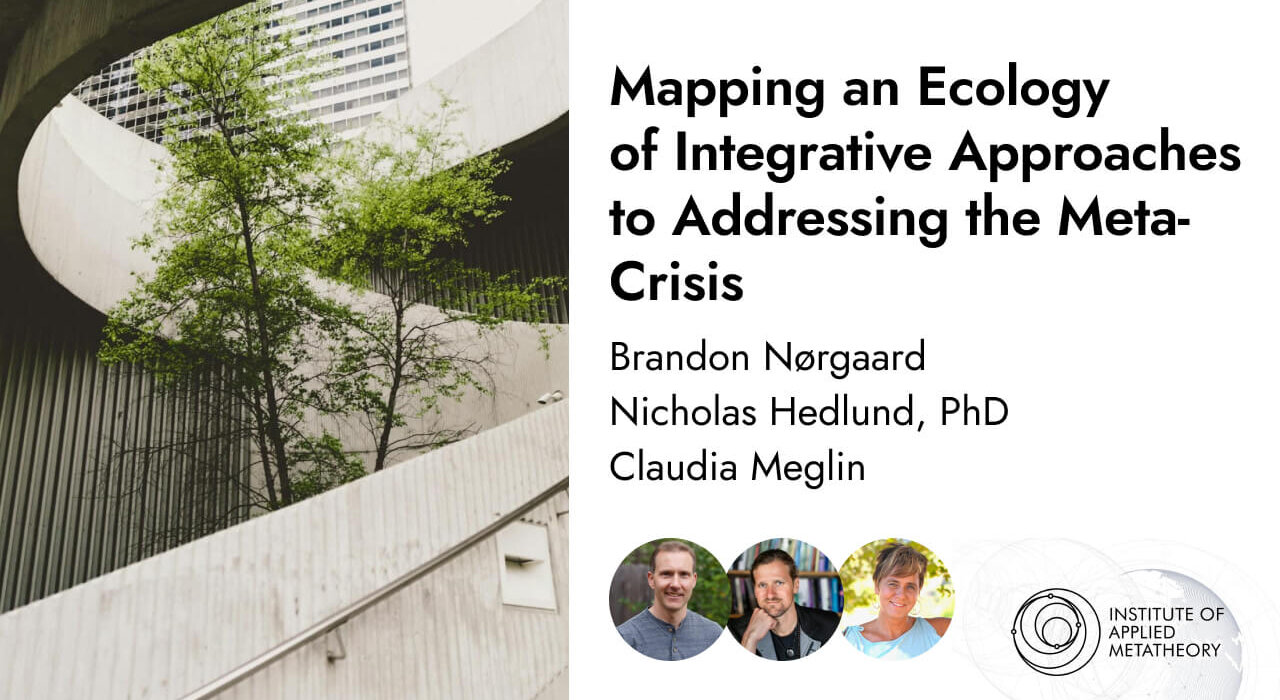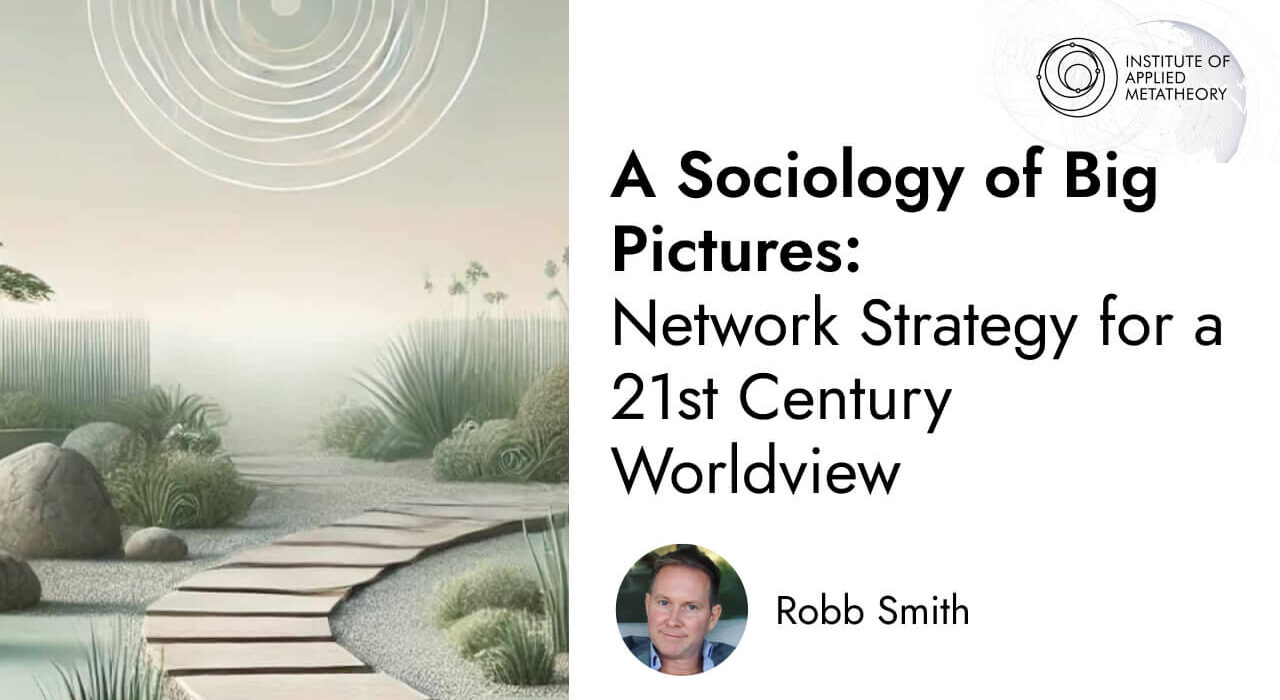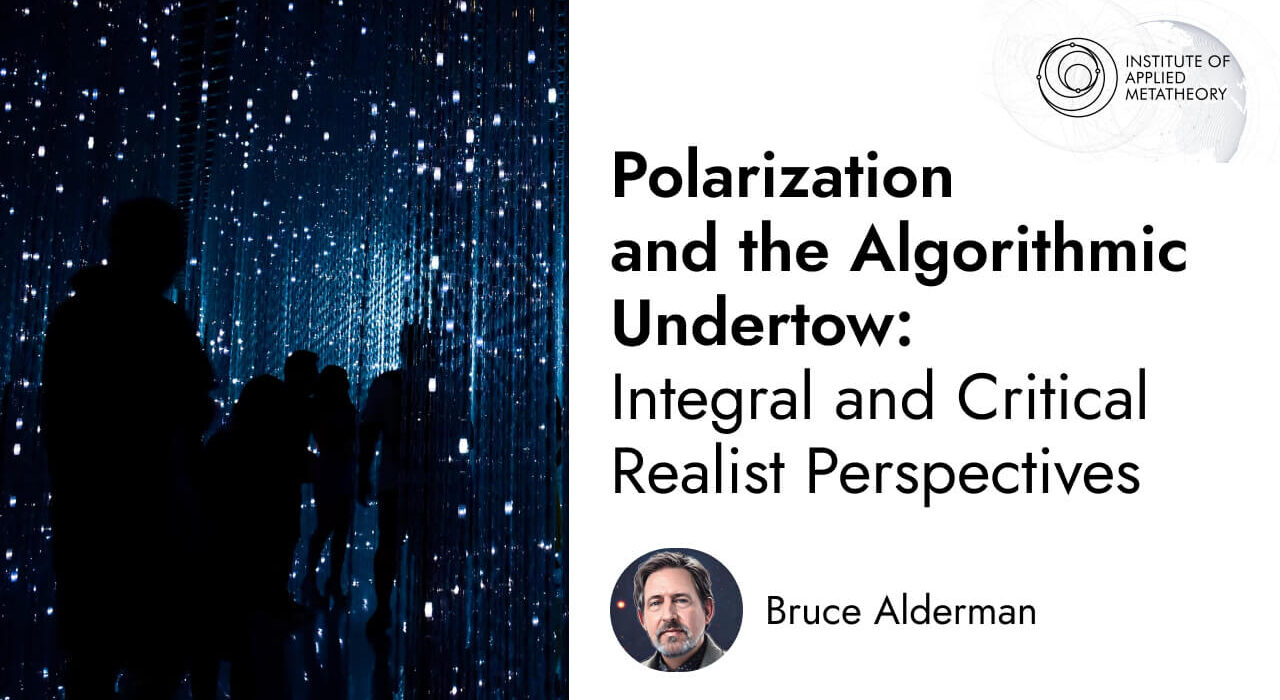Mapping an Ecology of Integrative Approaches to Addressing the Metacrisis
Dear friends,
The Institute of Applied Metatheory (IAM) is pleased to announce the release of a new white paper that charts the landscape of leading-edge responses to the global metacrisis. In “Mapping an Ecology of Integrative Approaches to Addressing the Metacrisis”, IAM scholars Brandon Norgaard, Nicholas Hedlund, PhD, and Claudia Meglin provide a sweeping (albeit provisional) cartography of emergent frameworks rooted in an “Integrative Worldview“—ranging from metamodernism and integral theory to systems science, process philosophy, and critical realism—that are converging around a shared impulse to address the root causes of our civilizational predicament.
Since IAM’s publication of my own white paper “The Sociology of Big Pictures” earlier this year, IAM has adopted an explicit strategy of generative worldview competition, and I encourage you to pay close attention to the number of fronts and efforts that the broader movement will engage, and which you might directly participate in, as we do so.
That’s why today’s paper is so important. It explores how a growing constellation of thinkers, communities, and organizations are weaving together philosophical, scientific, and developmental insights to craft multidimensional responses to the interlinked crises of our time. Rather than offering a singular solution, the paper maps an evolving ecology of sensemaking and praxis, identifying key patterns of coherence across diverse paradigms and highlighting their shared commitment to systemic transformation, ontological integration, and cultural evolution.
With this mapping effort, the authors aim to name some of the most significant and influential streams within integrative and metamodern thought, while valorizing their autonomy and validity. They emphasize that diversity is not merely a feature of thriving ecosystems—it is their very foundation. It ensures resilience, creativity, and even anti-fragility. While acknowledging differing and even divergent sensibilities within this space, the white paper affirms the coherence within this broader movement and advocates for cultivating its internal relationality, cross-pollination, and evolutionary potential.
“We envision moving toward a protopian—and eventually genuinely flourishing, eudaimonistic—society by engaging with these diverse thinkers and organizations, and encouraging this integrated yet pluralistic ecosystem to evolve. An adequate response to the metacrisis will not emerge from any single framework, but from the intelligent coordination and mutual curiosity among them.”
The authors argue that an integrative, metasystemic paradigm shift—one capable of catalyzing transformation across all sectors of the sociosphere—can only arise through deeper mutual understanding, strategic coordination, and shared generativity among schools of thought. Integrative communities must guard against epistemic hubris and competitive fragmentation, cultivating instead a spirit of collaboration, synthesis, and the curation of emergent collective intelligence.
As part of IAM’s broader mission to apply big-picture metatheoretical tools to humanity’s greatest challenges, this white paper contributes a vital resource for researchers, practitioners, and strategists working to cohere an ecosystem of transformation to rise to the demands of the metacrisis. It offers both a synoptic overview of the current terrain of integrative responses to the metacrisis and an invitation into a deeper, more interconnected and coordinated movement in service of planetary metamorphosis.
Loving regards,
Robb
For media inquiries or to connect with the authors, contact: iam@appliedmetatheory.org.



